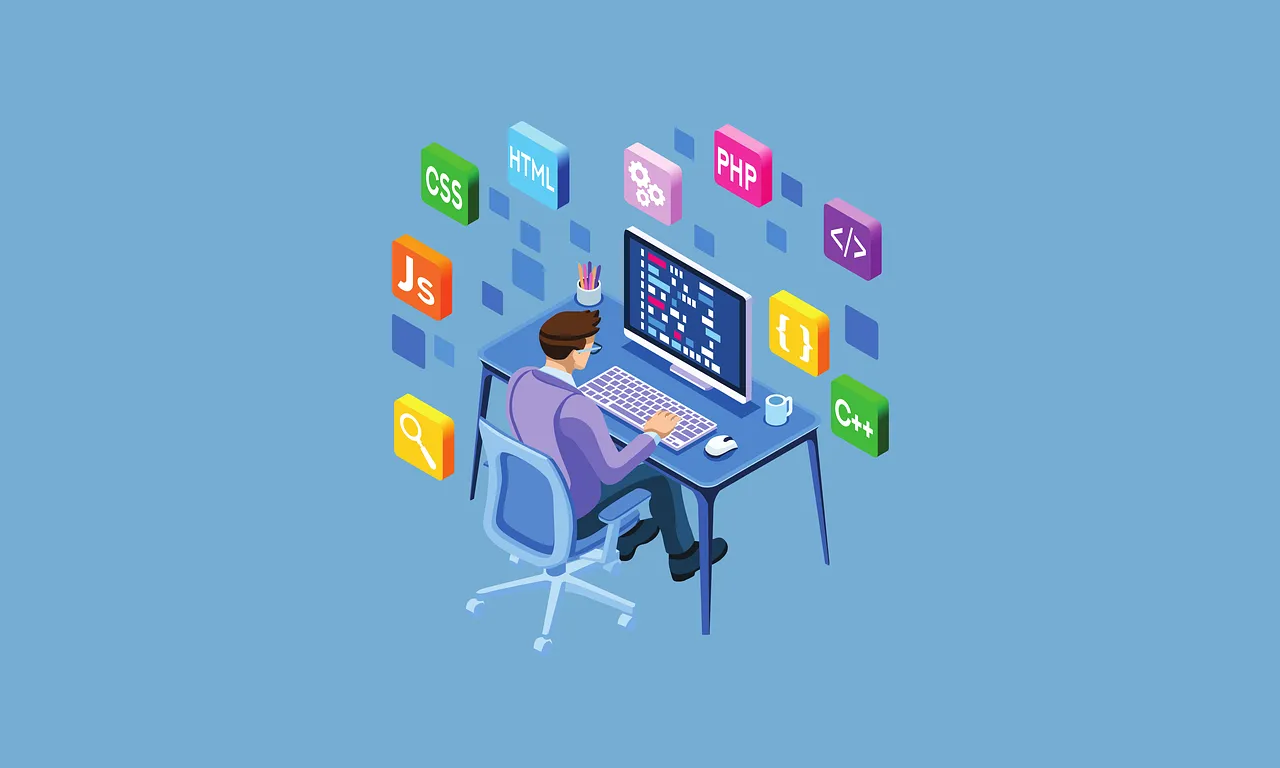Top 10 Programming Frameworks for App Development in 2025

Looking for the top 10 Programming Frameworks for App Development in 2025? Great ideas are important—but the real magic happens with the right app development framework. The right tool can save time, boost performance, and make your user experience shine.
Whether you're a seasoned developer or just starting your journey, we've put together a list of the best mobile app development frameworks for 2025. From open-source platforms to tools for native apps, these frameworks are changing the game. Let's dive into the top 10!
1. React Native
One of the most popular cross-platform mobile app frameworks by Facebook, React Native lets developers build apps using JavaScript with a single codebase for both Android and iOS.
Why Developers Love It: ● Use a rich UI component library
● Ideal for startups and development teams
● Supported by a strong developer community
Learn more about our mobile app development.
Best for: Apps that need to feel native without the hassle of two separate codebases. Ideal for startups and development companies that want to move fast.
2. Flutter
Backed by Google, Flutter is quickly becoming a top choice for cross-platform app development. Its visually rich design tools and fast rendering engine make it a designer’s and developer’s dream.
Key Features:
● 🔄 “Hot reload” for lightning-fast development.
● 🎨 Build custom, animated, and expressive user interfaces.
● 💻 One programming language (Dart) for multiple platforms.
● 🔌 Supported by a wide range of plugins and Google updates.
Best for: Pixel-perfect apps with smooth animations and stunning UI on any device.
3. Angular
Angular is a powerful JavaScript framework maintained by Google. It’s ideal for complex, platform-specific applications, especially in the enterprise space.
Why It’s Great:
● 🔁 Real-time two-way data binding
● 🧩 Modular architecture for better maintainability
● 🛠️ Built-in tools for routing, forms, and HTTP services
Best for: Development companies building large-scale web or hybrid apps with strong architecture and performance.
4. Vue.js
Vue.js is a flexible and beginner-friendly JavaScript framework. It's lightweight, fast, and perfect for building web apps or enhancing existing projects.
Highlights:
● 🚀 Fast learning curve for new developers
● ⚙️ Reactive UI components for dynamic apps
● 🔄 Great for both SPAs and progressive web apps
Best for: Developers who want a lightweight framework that doesn’t compromise on functionality.

Recommended for You: Small Business Website Design Services | Explore now.
5. Node.js
Node.js isn’t a traditional framework, but it’s a must-have for backend development. It’s built on Chrome’s V8 engine and is ideal for scalable, real-time applications.
Notable Features:
● 🔂 Event-driven architecture
● ⚡ Handles high-traffic apps with ease
● 💬 Use JavaScript on both front-end and back-end
Best for: Real-time apps like chat and streaming services, and apps that need scalability.
6. Django
Django is a high-level open-source framework based on Python. It’s known for security, simplicity, and rapid development.
Why Choose Django:
● 🏃 Quick to build MVPs and full-scale apps
● 🔒 Built-in security features
● 📈 Scales well as your app grows
Best for: Businesses looking for a secure, reliable backend for web and mobile apps.
7. Laravel
Laravel is a clean and elegant PHP framework with a strong focus on developer productivity.
Features That Stand Out:
● 🔀 Smooth routing and middleware handling
● 💡 Eloquent ORM for database ease.
● 🔧 Excellent for API development and testing.
Best for: Web apps that need robust backend solutions with a clear and maintainable code structure.
8. Ruby on Rails
Rails simplifies web development with its "convention over configuration" approach. It’s still a favorite for fast-moving startups.
Top Benefits:
● ⚡ Rapid development for MVPs
● 📦 Tons of pre-built gems for added functionality
● 🧪 Easy to test and maintain
Best for: Quick, agile app development with a clean developer experience.
9. .NET MAUI
Microsoft’s .NET MAUI (Multi-platform App UI) is perfect for building cross-platform apps using C#.
Key Features:
● 📱 Unified single codebase for desktop and mobile
● 🧩 Rich UI controls and native performance
● 🧠 Integrated with Microsoft Azure and Visual Studio
Best for: Enterprise development companies that rely on the Microsoft tech stack.

10. Ionic
Ionic lets developers build hybrid mobile apps using web technologies like HTML, CSS, and JavaScript.
Why Ionic is Great:
● 🌐 Built on familiar tools
● 💰 Cost-effective, especially for startups
● 🔌 Large plugin ecosystem for native features
Best for: Fast, affordable app launches without sacrificing quality.
✅ Choosing the Best Framework for Your Needs
With so many great options, here’s how to narrow it down:
● React Native / Flutter → Best for cross-platform mobile apps
● Node.js / Django → Ideal for back-end and real-time applications
● Ionic / Ruby on Rails → Great for fast MVPs and early-stage startups
● Angular / .NET MAUI → Enterprise-level, platform-specific solutions
No matter your project size or team skillset, there's a framework built to support your goals and deliver an exceptional user experience.

FAQs: Top 10 Programming Frameworks for App Development in 2025
1. What is a programming framework?
A programming framework is a set of tools and libraries that help developers build apps faster and more efficiently, using predefined structures and code patterns.
2. What’s the difference between native, hybrid, and cross-platform apps?
● Native apps: Built specifically for iOS or Android using platform-specific languages.
● Hybrid apps: Combine web code and native elements.
● Cross-platform apps: Use a single codebase to run on multiple platforms (like Flutter or React Native).
3. Are open-source frameworks reliable?
Absolutely! Open source frameworks are widely used, actively maintained and supported by strong communities—perfect for both solo developers and development companies.
4. Which frameworks are best for building native apps?
React Native, Flutter, and .NET MAUI are top choices for building native apps with high performance and shared codebases.
5. Can I use JavaScript for both front-end and back-end?
Yes! Tools like Node.js let you use JavaScript across the full stack, streamlining your development process.
6. How do I choose the right framework?
Consider:
● App type (web, native, hybrid, cross-platform)
● Platforms (Android, iOS, web, desktop)
● UI/UX needs
● Team’s skillset and preferred programming language
Budget and project timeline
Final Words
The top 10 programming frameworks for App development in 2025 is more exciting and more competitive than ever. The good news? You’ve got powerful frameworks at your fingertips to bring your ideas to life. Whether you’re focused on performance, speed, design, or scale, there’s a tool tailored to your needs.
Stay open to trying new frameworks, lean into your team’s strengths, and always prioritize great user experience. With the right technology, your next app could be the next big thing.